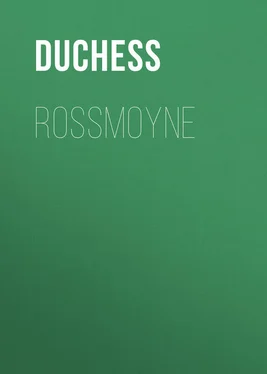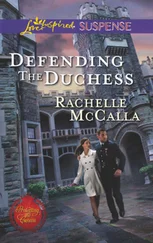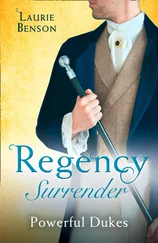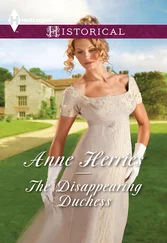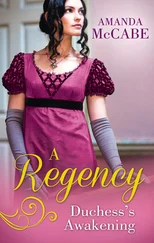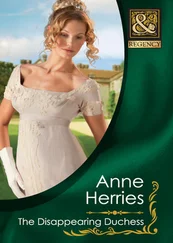Duchess - Rossmoyne
Здесь есть возможность читать онлайн «Duchess - Rossmoyne» — ознакомительный отрывок электронной книги совершенно бесплатно, а после прочтения отрывка купить полную версию. В некоторых случаях можно слушать аудио, скачать через торрент в формате fb2 и присутствует краткое содержание. Жанр: foreign_antique, foreign_prose, foreign_sf, на английском языке. Описание произведения, (предисловие) а так же отзывы посетителей доступны на портале библиотеки ЛибКат.
- Название:Rossmoyne
- Автор:
- Жанр:
- Год:неизвестен
- ISBN:нет данных
- Рейтинг книги:5 / 5. Голосов: 1
-
Избранное:Добавить в избранное
- Отзывы:
-
Ваша оценка:
- 100
- 1
- 2
- 3
- 4
- 5
Rossmoyne: краткое содержание, описание и аннотация
Предлагаем к чтению аннотацию, описание, краткое содержание или предисловие (зависит от того, что написал сам автор книги «Rossmoyne»). Если вы не нашли необходимую информацию о книге — напишите в комментариях, мы постараемся отыскать её.
Rossmoyne — читать онлайн ознакомительный отрывок
Ниже представлен текст книги, разбитый по страницам. Система сохранения места последней прочитанной страницы, позволяет с удобством читать онлайн бесплатно книгу «Rossmoyne», без необходимости каждый раз заново искать на чём Вы остановились. Поставьте закладку, и сможете в любой момент перейти на страницу, на которой закончили чтение.
Интервал:
Закладка:
"It's all very well for you," says the indignant Kit: " you're going, you know. I'm to stay at home, like that wretched Cinderella!"
"Katherine, I am sure you are quite unaware of the injustice of your remarks," says Miss Priscilla, at last finding her voice. She is bent on delivering a calm rebuke; but inwardly (as any one can see) she is quaking. "And I have frequently told you before that the expression 'I wish to goodness,' which you used just now, is anything but ladylike. It is not nice; it is not proper."
"I don't care what is proper or improper, when I am treated as I now am," says the rebel, with flashing eyes and undaunted front.
"There is really nothing to complain of," says Miss Priscilla, earnestly, seeing censure has no effect. "Madam O'Connor would not willingly offend any one; she is a very kind woman, and – "
"She is a regular old wretch!" says the youngest Miss Beresford, with considerable spirit.
"My dear Katherine!"
"And it's my belief she has done it on purpose !" with increasing rage.
"Katherine, I must insist – "
"You may insist as you like, but I'll be even with her yet," persists Kit, after which, being quite overcome with wrath, she breaks down, and bursts into a violent fit of weeping.
"My dear child, don't do that," says Miss Penelope, rising precipitately, and going over to the weeping fury. "Priscilla," in a trembling tone, "I fear it is selfish. I think, my dear, I shall stay at home, too, the day you all go to Madam O'Connor's."
This kills the storm at once.
"No, no, indeed, Aunt Penny, you shan't." Kit cries, subdued, but still in tears. She is overcome with remorse, and blames herself cruelly in that her ill temper should have led to this proposal of self-sacrifice. To give in to Kit is the surest and quickest method of gaining your own point. She throws her arms, as she speaks, around Miss Penelope's neck, and nearly strangles that dear old lady in her remorseful agitation, to say nothing of the deadly havoc she makes of her frills and laces.
"But indeed, my Kitten, it will be no privation to me to stay at home with you, and we will be quite happy together, and we will have our tea out in the orchard," says Miss Penelope, soothing her with sweet words; while Miss Priscilla, who is thoroughly frightened by the sobbing, pats the refractory child on the back, with a view to allaying all fear of convulsions.
"You shan't stay at home, Aunt Penny, – you shan't indeed," cries the inconsistent Kitten. "I like being alone, I love it; if you don't go to that place with the long name, and enjoy yourself very much, I shall be miserable all my life, though I love you very, very, very much for wishing to keep me from being lonely. Tell her I mean it, Monica."
"Yes, I am sure she means it," says Monica, earnestly, whereupon peace is once more restored to the breasts of the terrified aunts.
CHAPTER VI
How Monica goes to Aghyohillbeg, and meets there an old friend and a very new one.
Time flies, and no man can reach his hand to stay it. A very good thing, too, thinks Monica, as she stands before her looking-glass putting the last pretty touches to her white toilet.
It is Friday. Madam O'Connor's garden-party lies before her, and, probably, other things. Here she blushes at herself, as she sees that pretty soul in the glass, though, indeed, she has no cause to do so; but possibly the vague thought of those "other things" has something to do with it, and perhaps it is for their sake too that she places with such care the heavy, blood-colored rose beneath her chin.
This is the only suspicion of color about her. Her gown is white; her hat is white; long white silk gloves run up her rounded arms as though bent on joining her sleeves far above the elbow. A white Surat sash is tied round her dainty waist. She is looking "as fair as the moon, as lovely as a rose," and altogether distinctly dangerous.
Perhaps she half recognizes this fact, because she smiles at her own reflection, and – vain little girl that she is – stoops forward and kisses herself in the happy glass that holds her even for so brief a minute; after which she summons her maid from her dressing-room beyond.
"Canty," she says, as the "uncle's wife's sister's child" enters, "I am dressed now; and – "
"Shure, so you are, miss; and lovely ye look, more power to ye."
"Make my room very tidy," says Monica, giving her her directions before starting. "And, Canty, I shall want my blue dress for dinner. You can put it out."
"Yes, miss," whereupon Monica prepares to leave the room; but the new maid stops her.
"If ye please, Miss Monica," she says, hesitating, and applying her apron to her lips.
"Yes, Canty?"
"I'd be very thankful to ye, miss, if ye wouldn't call me that."
"Call you what?"
"Canty, miss."
"But," astonished, "isn't it your name?"
"No, miss; me name is Bridget."
"But surely Canty is your name, too?"
"Well, it's me father's name, miss, no doubt; but faix I feel just like a boy when ye call me by it, an' ye wouldn't like me to feel like a boy, miss, would ye?" says the village beauty casting an anxious glance at Monica from her dark Irish eyes, and blushing deeply.
"Certainly not," says Monica, laughing a little. "Very well, Bridget; I shall try to forget you ever had a surname."
"Thank ye, miss," says Bridget, with a sigh of profound relief.
Then Monica runs downstairs, where she finds her aunts in the drawing-room, dressed in their very best silk gowns, waiting for the carriage to come round. There is a little delay, which wasted time the two old ladies spend in endeavoring to drill Terence into shape. Something of this sort is going on as Monica enters.
"When I introduce you to Madam O'Connor or Lady Rossmoyne, my dear boy, be sure you make a very low bow. Nothing distinguishes a gentleman so much from the common herd as the manner of his salute. Now make me a bow, that I may judge of your style." Thus Miss Priscilla.
"I couldn't make one to order like that," says Terence; yet he sulkily complies, making a very short, stiff, and uncompromising nod that makes both aunts lift their hands in dismay.
"Oh, no, my dear! – that won't do at all ! Most ungraceful, and totally devoid of the dignity that should inspire it. Now look at me. It should be something like this ," making him a reverence that might well have created admiration in the court of Queen Anne.
"Ah, yes! that is something like what it should be," chimes in Miss Penelope, paying a tribute to the talent of her sister. "Priscilla has caught the true tone. I wish, Terence, we could see you more like your dear grandfather; he was a man to bow."
Terence, calling to mind the portrait of his "dear grandfather," as represented in the elaborate gilt frame in the dining-room, in a court suit and a periwig, and with an abominable simper, most devoutly thanks his gods that he is not like unto him. He is, indeed (feeling goaded to the last degree), about to break into unseemly language, when, fortunately, the arrival of the ancient equipage that has done duty at Moyne as state carriage for generations is announced.
The coachman, who is considerably older than Timothy, draws up the old horses before the door with a careful manner that impresses the beholder with the belief that he thinks they would run away in a minute if he relaxed a muscle on the reins; and a small boy who acts as footman and looks decidedly depressed, lets down the rickety steps.
Miss Priscilla Blake then enters the carriage. She is followed with much ceremony by Miss Penelope. After which Monica, who is impressed by the proceedings, and Terence, who is consumed with secret mirth, step in and seat themselves. Then the coachman says, "Gee up!" in exactly the tone he has employed for forty years; and the gloomy boy settling down beside him, they are all presently on the fair road to Aghyohillbeg.
Читать дальшеИнтервал:
Закладка:
Похожие книги на «Rossmoyne»
Представляем Вашему вниманию похожие книги на «Rossmoyne» списком для выбора. Мы отобрали схожую по названию и смыслу литературу в надежде предоставить читателям больше вариантов отыскать новые, интересные, ещё непрочитанные произведения.
Обсуждение, отзывы о книге «Rossmoyne» и просто собственные мнения читателей. Оставьте ваши комментарии, напишите, что Вы думаете о произведении, его смысле или главных героях. Укажите что конкретно понравилось, а что нет, и почему Вы так считаете.
